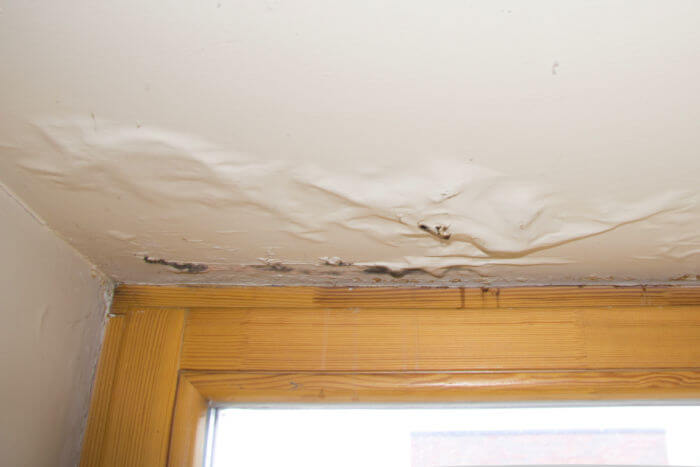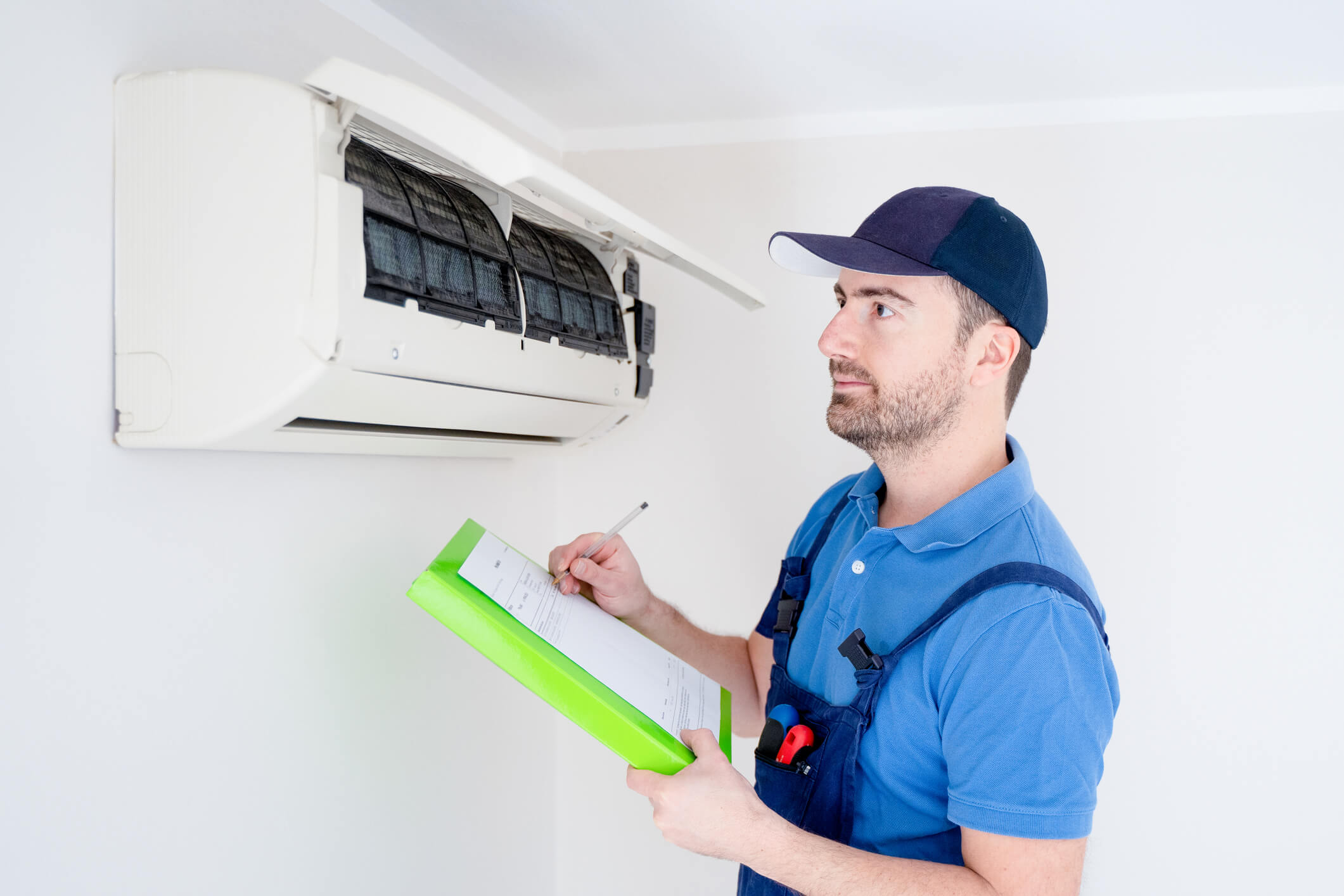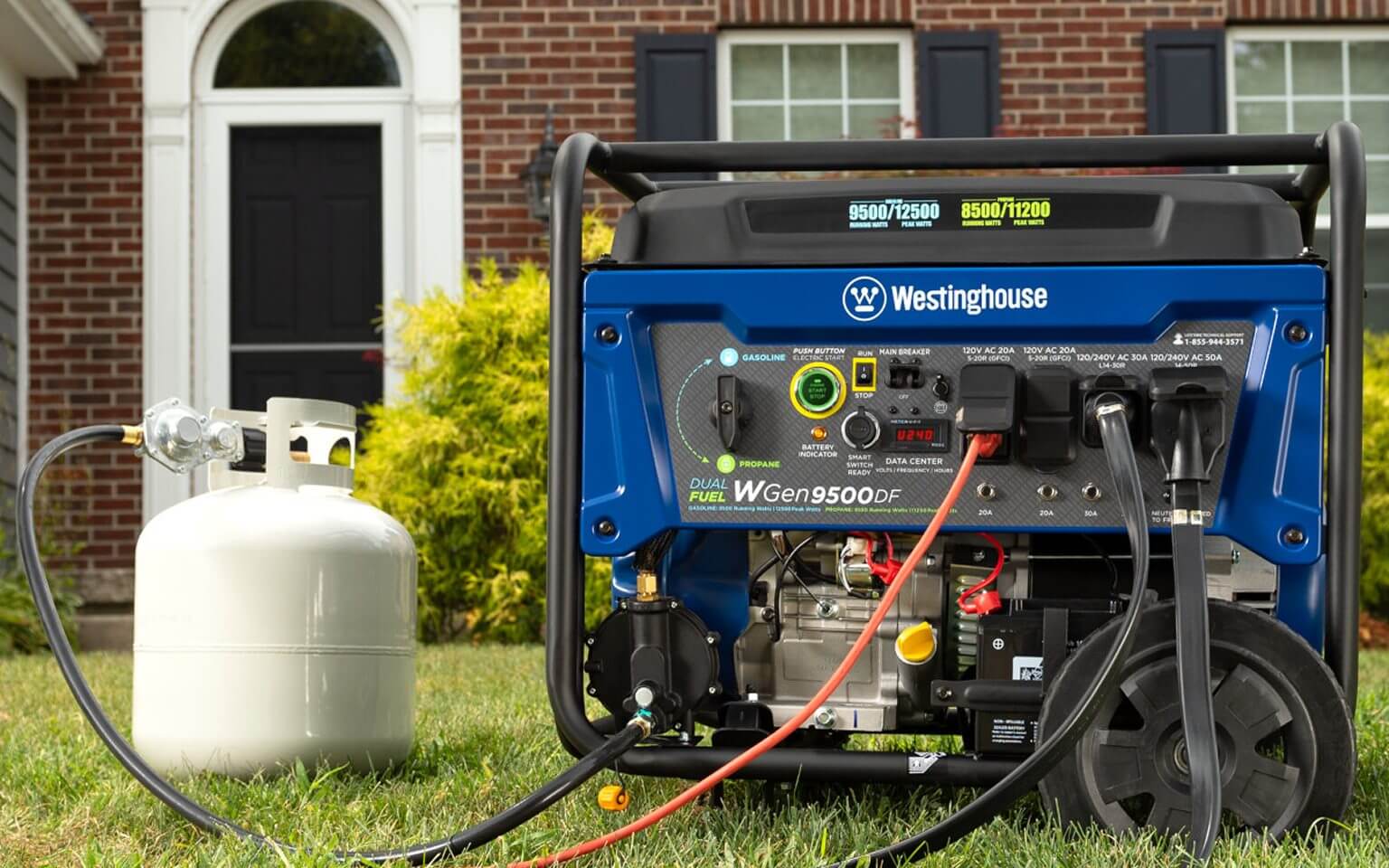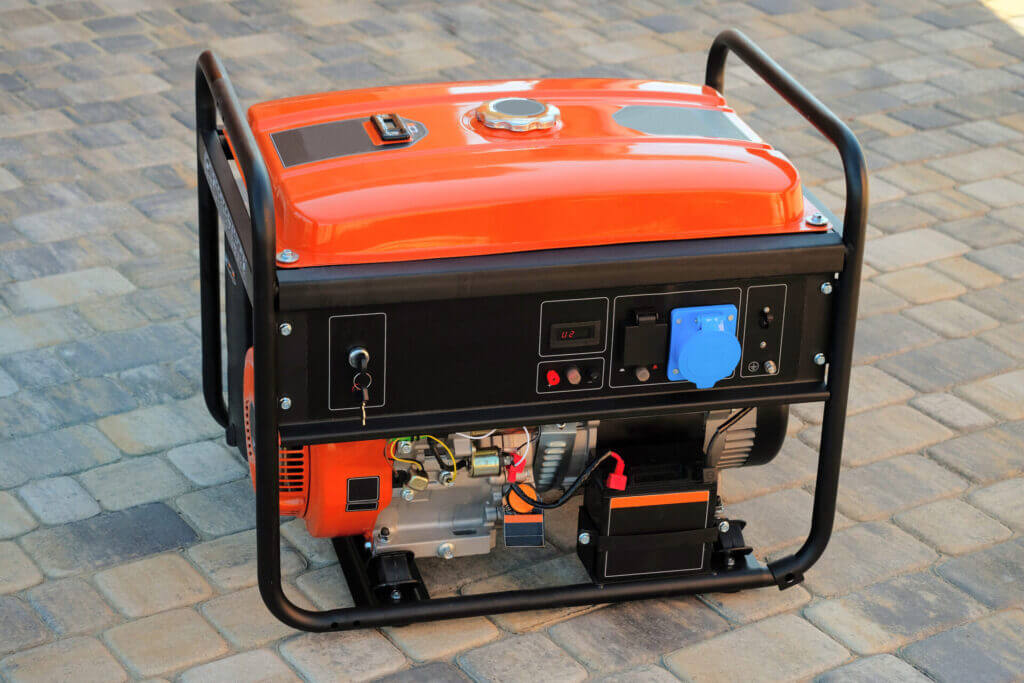Are you doing a plumbing project?
Modernize can pair you with three to four pros in your area, so you can compare options and save time and money.
Water Leak Sensors: What to Know
Water damage might start as a small nuisance, but it can quickly become expensive. A slow leak can ruin flooring, warp wood, damage carpet, and lead to mold growth inside walls. The good news: water leak sensors are a simple, affordable way to catch leaks early, before they spiral into major repairs.
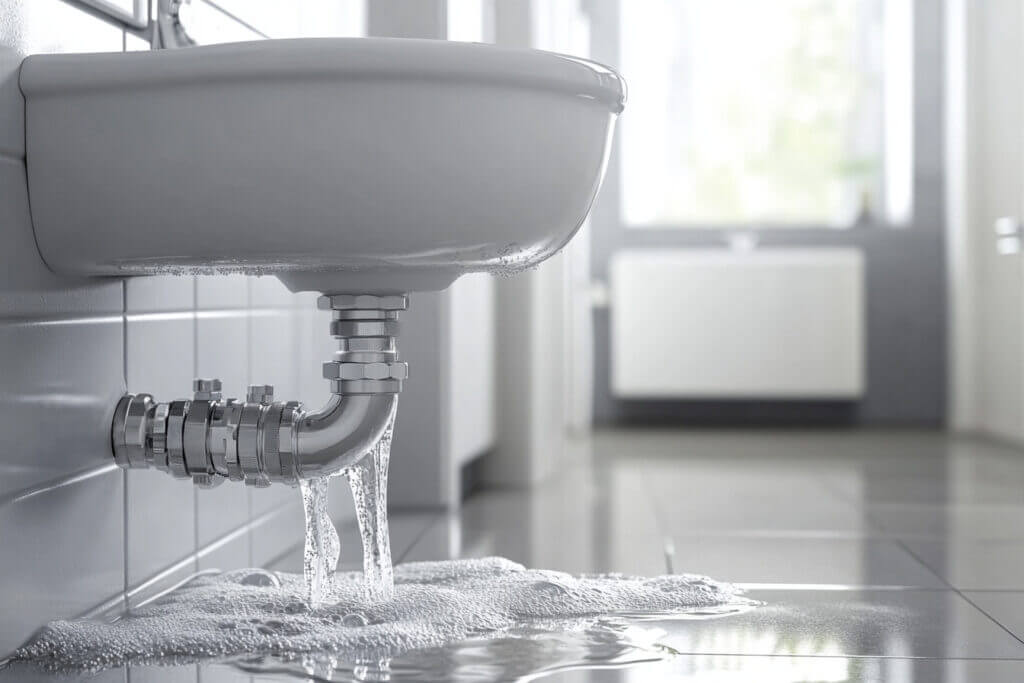
How a Water Leak Sensor Works
At its core, a water leak sensor reacts when water touches its probes. Here’s what happens:
- Detection: Water contacts the sensor’s probes and completes an electrical circuit.
- Signal transmission: The circuit triggers the sensor to respond.
- Alert: The sensor sounds an alarm and/or sends a notification.
- Smart monitoring (optional): Some models connect to Wi-Fi or a hub and alert you through an app (and may also track temperature/humidity).
This early warning gives you time to act — long before a small drip becomes a costly problem.
Where Leaks Are Most Likely to Happen
Leaks can come from many places in and around your home. Common sources include:
- Appliances: Dishwashers, washing machines, and refrigerators with water lines
- Water heaters: Leaks often start at the base or in the drip pan
- Plumbing fixtures: Toilets, sinks, tubs, and supply lines
- Basements: Burst or frozen pipes can flood floors quickly
- Roofs: Leaks often appear after heavy rain or snow
- Shared walls: In apartments/condos, a neighbor’s leak can become your problem
Even a small, slow leak can become costly if it’s hidden behind walls or under flooring — especially when mold is involved.
Best Places to Install Water Leak Sensors
Most leak sensors are compact, so they fit discreetly in high-risk areas. Good placement matters as much as the sensor itself.
Find the Right Contractor for Your plumbing Project
Whether you’re ready to begin your project now or need some expert advice, our network of contractors are here to help. With a few simple questions, we’ll find the best local professionals for you
- Beneath the dishwasher
- Next to the washing machine (especially in the drip pan)
- Near or under the water heater
- Under bathroom and kitchen sinks
- On the basement floor near water pipes
- Any area where leaks have happened before
Covering these “risk zones” greatly improves your chances of catching a leak early.
Our Top Picks for Water Leak Sensors
If you’re ready to protect your home, here are two popular options to consider:
Flo by Moen Smart Water Detector
Moen’s sensor connects to Wi-Fi and can send instant alerts to your phone when it detects water. Many homeowners like it for its app-based notifications and added monitoring features (such as temperature/humidity).
Govee Wi-Fi Water Leak Sensor
Govee offers multi-pack sensors that provide real-time alerts and loud local alarms — helpful if you want to cover multiple areas without spending as much per sensor.
Take Action Before the Drip Becomes a Flood
Bottom line: Pipes burst, appliances fail, and roofs leak; it’s often a matter of when. Installing water leak sensors in the right places can help you avoid costly damage, reduce mold risk, and catch problems before they spread.
Protecting your home doesn’t have to be complicated. A small device today can save you big headaches tomorrow.
Find the Right Contractor for Your plumbing Project
Whether you’re ready to begin your project now or need some expert advice, our network of contractors are here to help. With a few simple questions, we’ll find the best local professionals for you
Reviews from Real Homeowners
Welcome to Homeowner Resources! We are the Modernize blog. Modernize pairs more than 3 million homeowners a year with pre-vetted contractors in their area. This blog started because we believe homeowners should know everything about their homes, from how their HVAC works to which front door colors they might love. On Homeowner Resources, you can find information on every part of your home, right down to how you can negotiate with contractors to get the best price. Here's more about the blog.
Need a contractor? Learn more about how Modernize finds the right pro for you.
